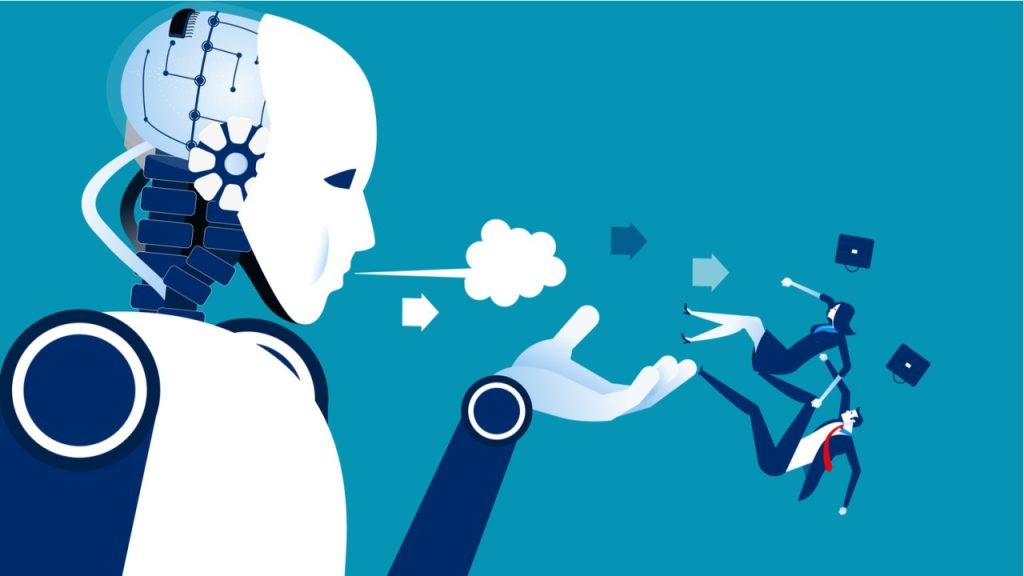Navigating the Changing Workforce: AI’s Impact on Student-Athletes’ Career Paths

As artificial intelligence (AI) continues to evolve, it’s not just white-collar jobs that are being impacted—it’s entire industries, including the sports world. For student-athletes, this means navigating a rapidly shifting job market that requires new strategies for success. AI is reshaping the way we approach work, and it’s crucial for those transitioning from college sports into professional careers to understand the opportunities and challenges ahead.
Over the past few years, tech companies have started reducing their workforces, attributing much of this to the rise of AI. Microsoft and Salesforce, for example, have implemented layoffs with the claim that AI can handle up to 50% of their daily operations. While this signals potential disruptions in the job market, it also opens doors for student-athletes to leverage their skills in innovative ways.
Why This Matters for Student-Athletes
Student-athletes are often poised to transition into the workforce after graduation, bringing not just athletic prowess but also leadership, teamwork, and problem-solving skills—qualities AI cannot replicate. However, AI will inevitably change the types of jobs available in sectors like law, marketing, and banking. For athletes with a future outside of sports, understanding how to adapt to a workforce increasingly dominated by AI will be essential.
The rise of AI means that jobs in tech and other industries are evolving, and competition will only get fiercer. This is where student-athletes can use their unique backgrounds to stand out. The discipline and resilience honed on the field can be assets when competing against others in a rapidly transforming job market. But even for them, this means facing new challenges. As more industries adopt AI technologies, student-athletes must be prepared to leverage their transferable skills in ways that AI can’t replicate.
Preparing for a New Career Landscape
Historically, the job market has been shaped by technology, globalization, and evolving industry needs. The rise of AI is simply the next phase in this progression, and understanding how to adapt is crucial. For student-athletes, this means two things: first, they must recognize how AI will change job opportunities and, second, they need to position themselves to take advantage of new opportunities that AI might create.
For example, careers in law, marketing, and data analysis are all experiencing shifts as AI begins to take over more routine tasks. However, the human element—empathy, creativity, and relationship-building—remains irreplaceable. This is where student-athletes, who have already demonstrated leadership, communication, and resilience, will have an edge. Whether they choose to enter business, tech, or law, their ability to adapt, lead, and innovate in a digital-first world will set them apart from other job seekers.
The Importance of Upskilling
While AI is reshaping industries, it also presents new avenues for growth. Student-athletes can take advantage of this by upskilling, learning how AI and other technologies can be applied to their chosen fields. Whether it’s through taking courses in coding, digital marketing, or data analysis, student-athletes who learn to integrate AI into their skill sets will be ahead of the curve when it comes to career advancement.
Additionally, there’s an opportunity for student-athletes to bridge the gap between technology and sports. Whether it’s using AI to analyze athletic performance, improve sports management, or even develop new tech tools, the sports industry is ripe for innovation. AI offers tools for athletes to enhance their training, improve recovery times, and better understand the analytics behind their performance. These tools can be applied beyond the game, offering student-athletes career opportunities in sports tech and analytics after their playing days are over.
Embracing Change with Confidence
AI’s rapid growth may seem overwhelming, but for student-athletes, it represents a chance to innovate, adapt, and excel. The future of work will not only require technical expertise but also the soft skills—such as leadership, adaptability, and teamwork—that student-athletes have developed through years of training and competition.
As AI continues to evolve, the challenge will be to embrace its potential while remaining true to the human qualities that make student-athletes unique. By staying proactive, learning new skills, and applying their strengths in innovative ways, student-athletes can ensure they’re ready for whatever the future holds.

